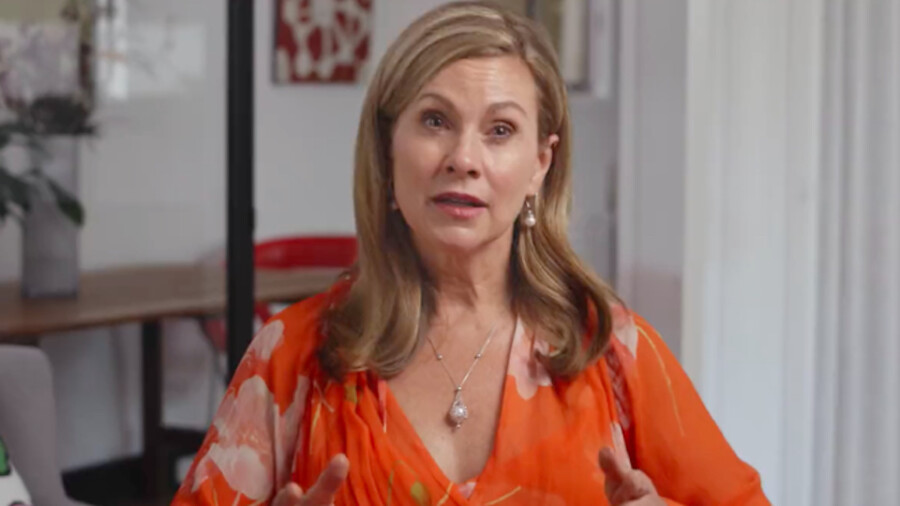
CANBERRA, Australia — Australia’s eSafety Commissioner and top censor Julie Inman Grant, who has acknowledged having conversations with the U.S.-based, religiously-inspired anti-porn lobby NCOSE, submitted to the government on Friday a road map to implement age verification for what she considers “online pornographic sites.”
The eSafety document, in the works for the past two years, has not been made available to the press or the public.
According to her official bio, Inman Grant claims to “lead the world’s first government regulatory agency committed to keeping its citizens safer online.”
Inman Grant — who before moving to Australia received degrees from Boston University and American University, worked in politics in Washington D.C. and then for tech giants Microsoft, Twitter and Adobe — was reappointed for a further five-year term by the Australian Government in Jan. 2022.
“The age verification roadmap was handed to the [Labour] Albanese government on Friday, coinciding with the deadline on the final draft of the online safety codes that have been developed by the tech industry,” reported public policy news InnovationAus.com today.
A Road Map Commissioned by Scott Morrison’s Right-Wing Government
The road map had been originally commissioned from Inman Grant by the right-wing government of Prime Minister Scott Morrison in June 2020 following a parliamentary inquiry into age verification for online adult content.
The Morrison government endorsed Inman Grant’s proposal of a number of intrusive measures to determine people’s identity and age for accessing sexual content.
Inman Grant’s office would not release details of the road map but self-assessed its prudence by saying in a statement that “without pre-empting any decisions by government, eSafety’s research and engagement in developing the roadmap has identified that any potential technological solutions need to strike the right balance between safety, security and privacy. They must also go hand in hand with education and awareness raising for children and young people, as well as parents, carers, educators and other supporting adults.”
Inman Grant’s office also stated eSafety was still working out ways to address what she calls “high-impact content that can be harmful to children,” which includes “pornography.
What the commissioner called “mandatory industry-developed online safety codes” concerning online porn, however, do not appear to have been submitted by the Friday deadline, and statements about the timeline for them were unclear.
Unlike the U.S., Australia does not have any blanket protections of free speech like the First Amendment, or a Section 230 analog protecting platforms from liability for third-party uploads.
As XBIZ reported, the new guidelines, which Inman Grant tirelessly promoted nationally and internationally in the U.K. and the U.S., would necessitate a government definition of “pornographic website” or “adult website,” and would also have to specify if non-porn-specific platforms such as Twitter and Reddit, which tolerate adult content, would also fall under that category unless they ban all sexual content.
Inman Grant Upset About XBIZ, Accountability
In November 2021, Australian investigative outlet Crikey published a lengthy report on Inman Grant’s obsession with banning online porn. The report revealed documents, obtained under Australia’s Freedom of Information Act, in which the country’s top internet regulator revealed explicit animosity towards press coverage of her contacts with NCOSE, formerly known as Morality in Media, and other foreign crusading organizations.
Staff from the office of Inman Grant’s office admitted to Crikey that “her appearance on the podcast of a US-based anti-porn, anti-sex trafficking organization added to LGBTIQ+ and sex worker communities’ fears about her new powers.”
Inman Grant’s appearance on the NCOSE podcast “was a recorded interview broadcast at the Coalition to End Sexual Exploitation summit in July, just weeks after the Parliament passed the Online Safety Act.”
According to Crikey’s sources in the Australian regulator’s office, “it was only after the podcast was published in September and promoted on Inman Grant’s Twitter account that it drew the attention, and ire, of people online who criticized her for appearing with NCOSE. This was influenced by news editor of sex industry trade publication XBIZ Gustavo Turner’s coverage.”
In a 2021 email sent shortly after with the subject line “Angry porn people and the LGBTQI+ community,” Inman Grant told two other staff that there are “U.S.-based porn people spreading a fair amount of misinformation” about the interview. She says that she doesn’t think NCOSE is a religious organization and chalks up the opposition to the sex industry having a “beef” with them.
“This may be our ‘new normal’ now that we have been thrown in the midst of the ‘porn wars’ …,” she writes.
One staff member replied, confused about Inman Grant’s appearance. They attached a screenshot from a Google search of NCOSE that shows it listed as “an American nonprofit known for its anti-pornography and anti-sex trafficking advocacy”: “Is this accurate? Who recommended that we do this? Was due diligence done?” they asked.
A staff member responds later by raising the alarm about NCOSE’s past efforts, including trying to block LGBTIQ+ content on schools computers.
“So this feeds into that narrative that we have discussed earlier — that some sectors of the community (most notably the LGBTIQ+ community) are very distrustful of the government and feel that eSafety’s new powers are a bit of a Trojan Horse to silence their voices and/or consensual or positive porn,” they wrote.
Inman Grant and staff agreed to delete her tweet promoting the podcast, but explicitly advised against speaking to XBIZ.
